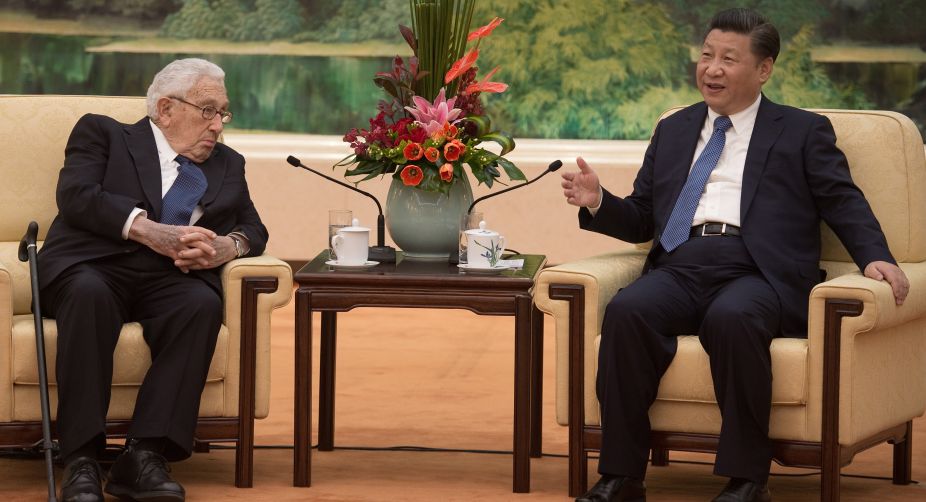Trump threatens further tariff hikes after Canada retaliates
US President Donald Trump has warned Canada that he will escalate his trade war after Prime Minister Justin Trudeau announced retaliatory tariffs on US goods.
While praised for intellect and experience, Kissinger faced criticism, labeled a war criminal for supporting anti-communist dictatorships, notably in Latin America

Former US Secretary of State Henry Kissinger (L) with China's President Xi Jinping (R) (Photo: AFP)
Former US Secretary of State Henry Kissinger, a pivotal figure in shaping the country’s Cold War legacy, passed away at 100 on Thursday. A controversial Nobel laureate, he served under two presidents, leaving an indelible mark on US foreign policy. Kissinger Associates Inc confirmed his passing at his Connecticut home.
Even in his centennial year, Kissinger remained active, attending White House meetings and releasing a book on leadership. He testified about North Korea’s nuclear threat before a Senate committee and made a surprise visit to Beijing to meet Chinese President Xi Jinping.
Advertisement
During the 1970s, he served as Secretary of State under President Richard Nixon, instrumental in pivotal global events. A German-born Jewish refugee, Kissinger played a key role in initiating diplomatic relations with China, negotiating US-Soviet arms deals, fostering ties between Israel and Arab nations, and orchestrating the Paris Peace Accords with North Vietnam. Though his influence in US foreign policy waned after Nixon’s resignation in 1974, he remained a significant diplomatic force during President Gerald Ford’s tenure and continued to voice strong opinions throughout his life.
Advertisement
While praised for intellect and experience, Kissinger faced criticism, labeled a war criminal for supporting anti-communist dictatorships, notably in Latin America. In his later years, travel was restricted due to international attempts to question him about past US policies.
The contentious 1973 Peace Prize, shared with Le Duc Tho of North Vietnam (who declined it), sparked resignations from Nobel committee members and inquiries into US covert actions in Cambodia.
Born Heinz Alfred Kissinger in Germany in 1923, he immigrated to the US in 1938 to escape Nazi persecution. Taking on the name Henry, he became a citizen in 1943, serving in World War II and pursuing education at Harvard.
Post-government service, Kissinger founded a consultancy in New York, advising global corporate leaders. He sat on company boards, participated in foreign policy forums, authored books, and became a prominent commentator on global affairs.
Following the 9/11 attacks, President George W. Bush tapped Kissinger to lead an investigative committee. However, objections regarding potential conflicts of interest led to his resignation from the position due to ties with his consultancy’s clients.
Advertisement